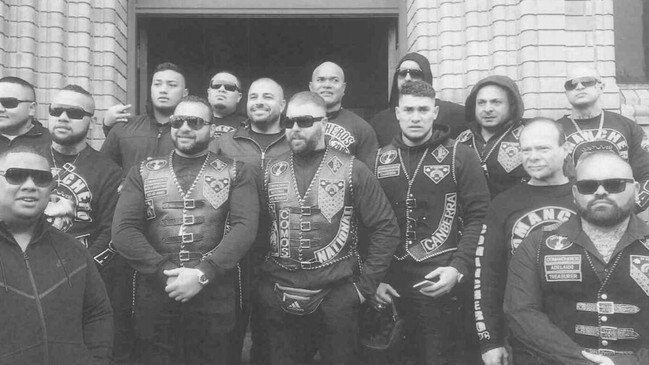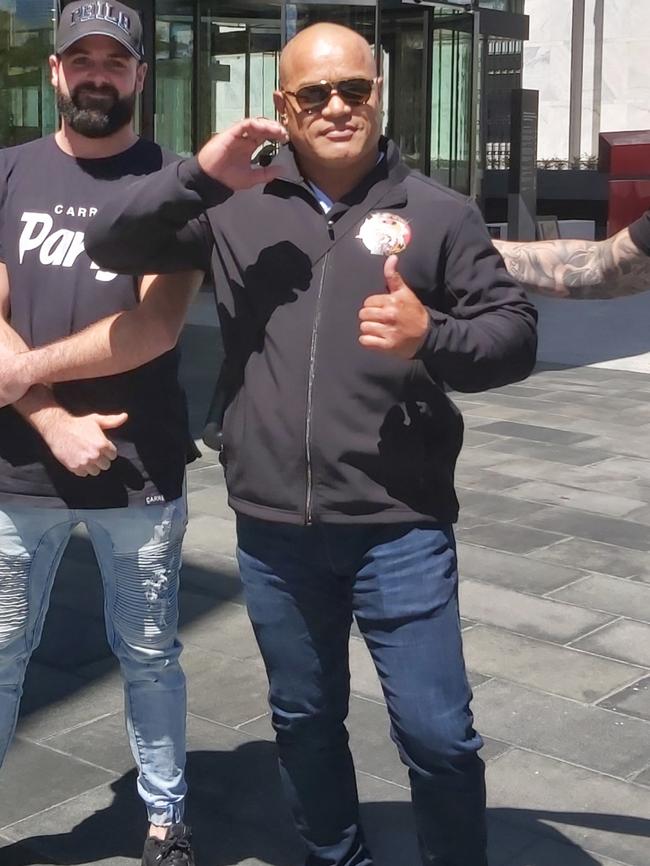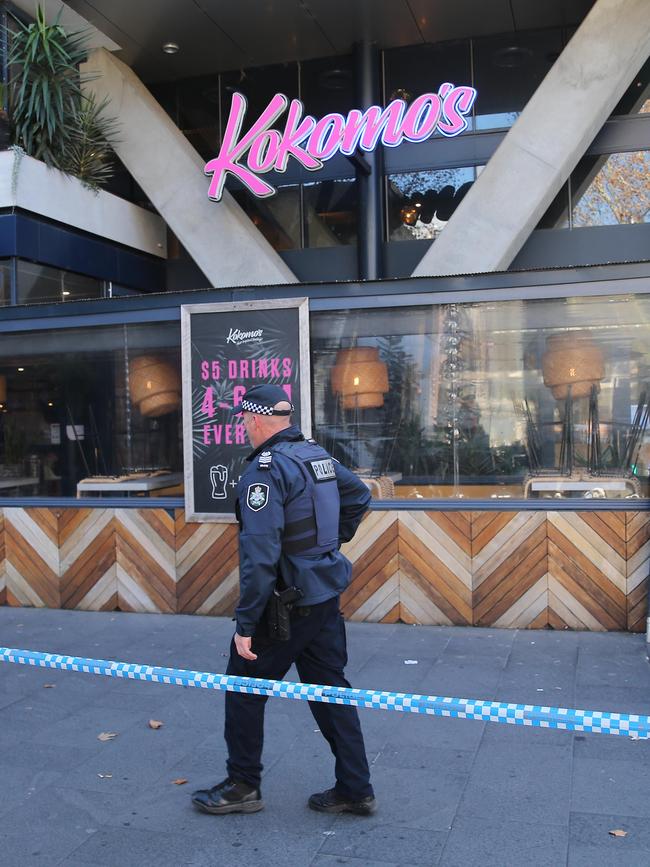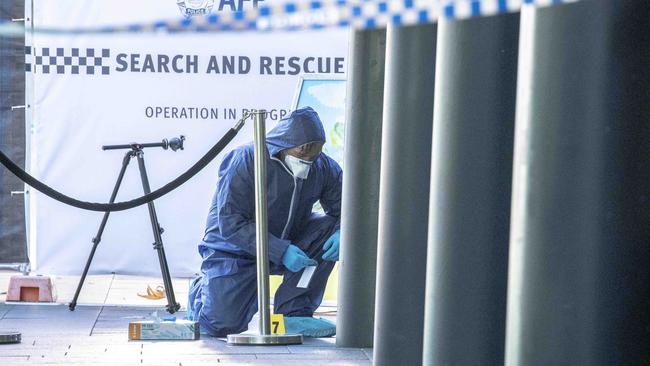Comanchero Pitasoni Ulavalu: Canberra’s ‘soft’ bikie laws let president be at bar before killing
The killing of Canberra Comanchero president Pitasoni Ulavalu came just months after the ACT government justified its soft stance on local gangs with a report claiming media outlets were exaggerating bikie-linked violence.

Hyperlocal
Don't miss out on the headlines from Hyperlocal. Followed categories will be added to My News.
- ANU college students detail shameful drunken ‘hazing’ rituals
- ‘Agitated’ bikie arrested after threats to cops at scene of killing
- ADFA cadet who secretly filmed threesome tries to dodge jail
The killing of Canberra Comanchero president Pitasoni Ulavalu came just months after the ACT Labor government justified its soft stance on local gangs with a report that claimed media outlets were exaggerating bikie-linked violence.
Mr Ulavalu bled to death on the footpath outside Kokomo’s nightclub in Canberra, following a brawl involving “numerous outlaw motorcycle gang members from the Comanchero Motorcycle Club”.
ACT police are yet to make any arrests or lay any charges over Mr Ulavalu’s death.
Court records show Mr Ulavalu had been obeying bail conditions to not associate with gang members in public, until Magistrate Glenn Theakston lifted the conditions last week, giving Mr Ulavalu the green light to be at the bar with other gang members.
The previous conditions not only banned Mr Ulavalu from being with other Comanchero members in public, but also members of the rival Nomads.
The previous bail conditions mirrored interstate anti-consorting laws and for a time had also seen Mr Ulavalu banned from all licensed premises.


Police sources said it appears unlikely Mr Ulavalu would have been at the bar when the violence broke out had the bail conditions remained in place, or had he been the subject of anti-consorting laws.
The ACT Liberals have this week demanded the government introduce tougher anti-bikie laws.
Anti-consorting laws are also backed by the Australian Federal Police Association, which says the ACT has for years given gangs a “green light for motorcycle gangs to roam and operate freely in Canberra”.

The Barr Labor government has repeatedly rejected calls to bring the ACT’s anti-bikie laws in line with other states, arguing it should prioritise bikie gang members’ human rights.
A February report commissioned from Queensland academic Terry Goldsworthy accused other states of cracking down on bikie gangs in moments of “moral panic”.
Attorney-General Gordon Ramsay has said the report justifies the government’s stance, which prioritises the human rights of gang members.
Mr Goldsworthy claimed bikie violence was exaggerated by the media and said: “perceptions do not always correspond to reality”.
“Many of the crimes committed by current OMCG members are minor and not of a serious or organised crime nature,” he said.
The ACT Attorney General’s office has been contacted for comment but has not responded.

